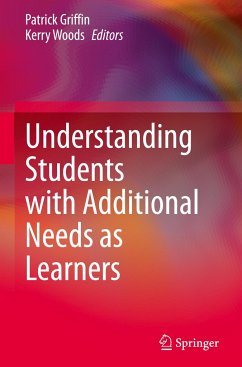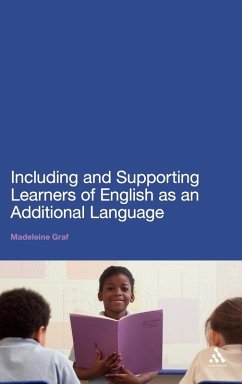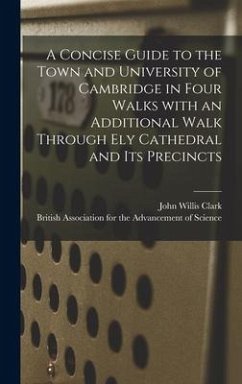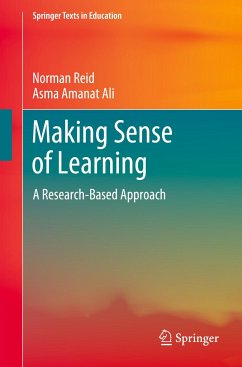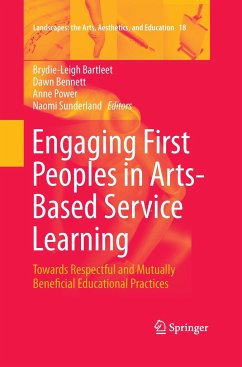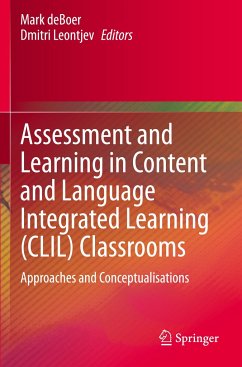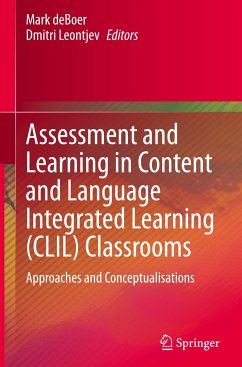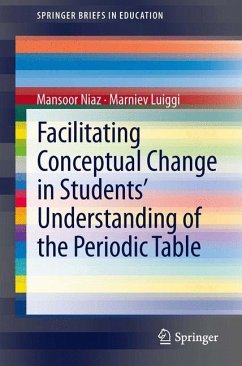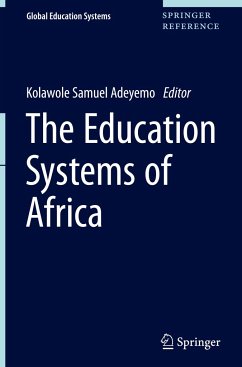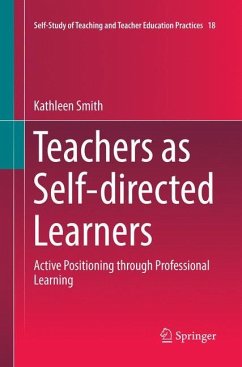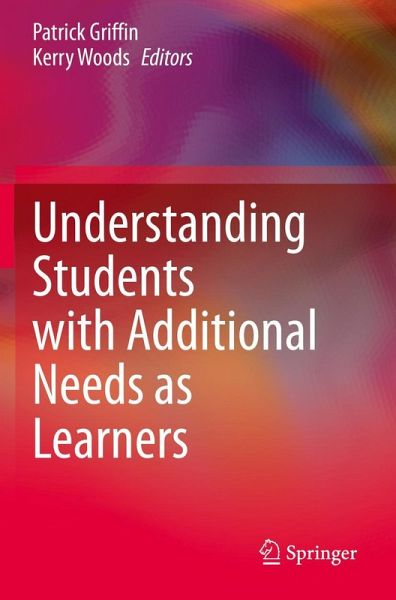
Understanding Students with Additional Needs as Learners
Versandkostenfrei!
Versandfertig in 6-10 Tagen
113,99 €
inkl. MwSt.

PAYBACK Punkte
57 °P sammeln!
This book brings together a compendium of the collaborative research from eight PhD students and three researchers, addressing an existing problem for teachers of students with additional learning needs in mainstream classes. The purpose of this research is to describe the development of growth progressions in communication and literacy, interpersonal skills and understanding of emotions, learning skills, numeracy, movement, digital literacy, thinking and problem-solving skills among students with additional needs in the classroom, known as SWANS (Students with Additional Needs).The research h...
This book brings together a compendium of the collaborative research from eight PhD students and three researchers, addressing an existing problem for teachers of students with additional learning needs in mainstream classes. The purpose of this research is to describe the development of growth progressions in communication and literacy, interpersonal skills and understanding of emotions, learning skills, numeracy, movement, digital literacy, thinking and problem-solving skills among students with additional needs in the classroom, known as SWANS (Students with Additional Needs).
The research has grown over a decade or more and this volume brings all that research together under a single cover in a way that has not been done before. It shows how work conducted at the same system and school level that led to the design of curriculum support for SWANS, drawing on the research to establish expected learning progressions, was linked to a mainstream curriculum. Italso illustrates strategies and materials that could be used by mainstream teachers or special education teachers to make teaching SWANS practical and effective. The book offers new insights, and a ready to use volume of material for curriculum writers, student teachers, researchers, and special education teachers and administrators.
The research has grown over a decade or more and this volume brings all that research together under a single cover in a way that has not been done before. It shows how work conducted at the same system and school level that led to the design of curriculum support for SWANS, drawing on the research to establish expected learning progressions, was linked to a mainstream curriculum. Italso illustrates strategies and materials that could be used by mainstream teachers or special education teachers to make teaching SWANS practical and effective. The book offers new insights, and a ready to use volume of material for curriculum writers, student teachers, researchers, and special education teachers and administrators.





